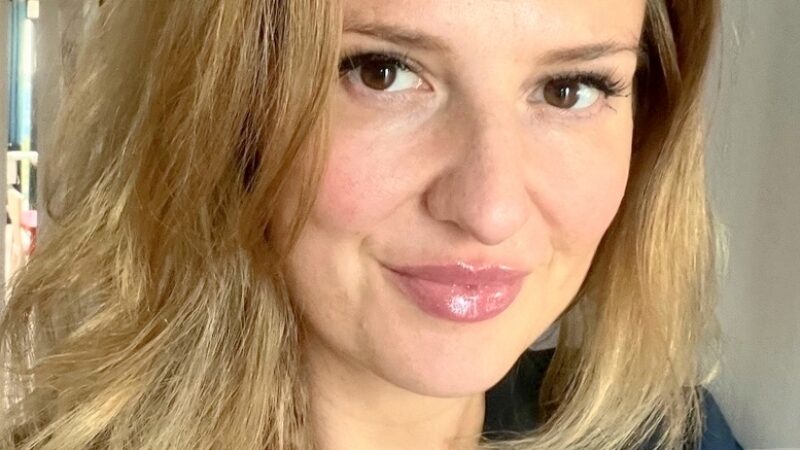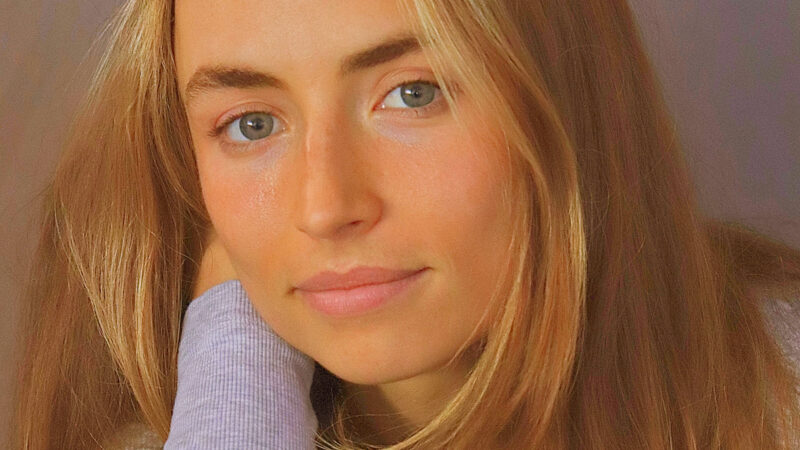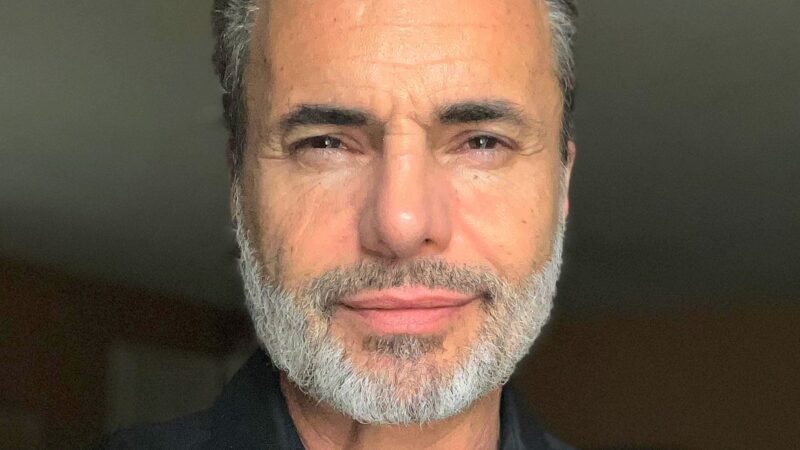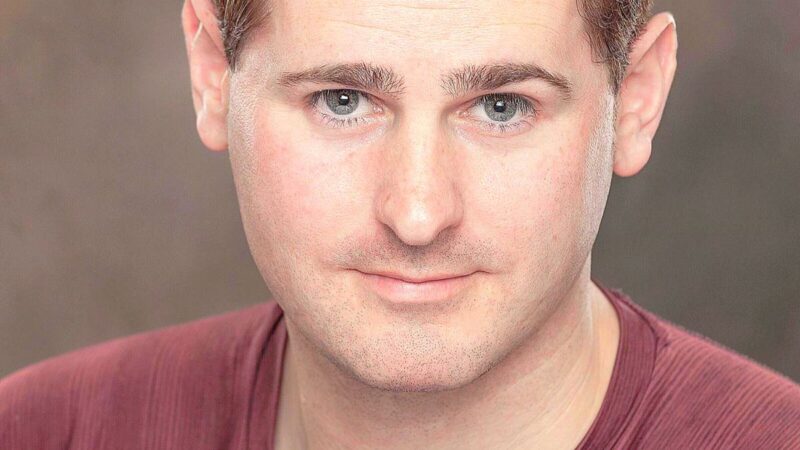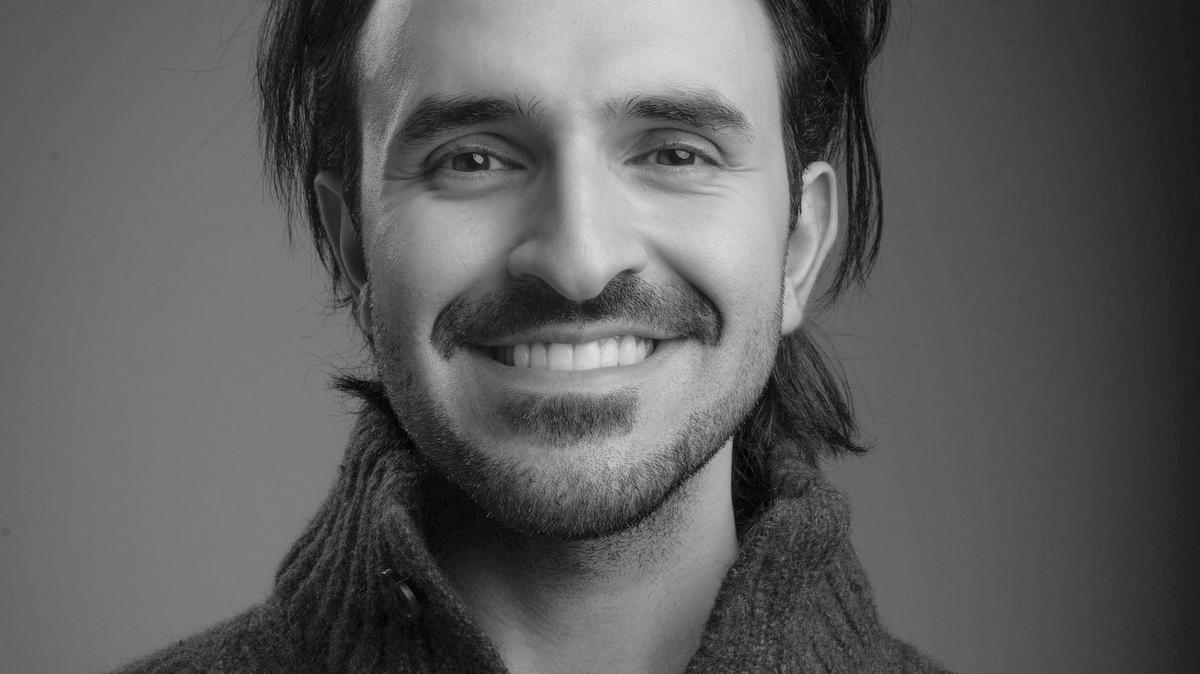
The introduction is placed right here
indieactivity: How did you get into directing? How would you describe your style?
Amir Zargara (AZ): I had an unorthodox path into directing. Growing up in Iran, cinema and the arts are deeply ingrained in our culture and daily life. However, unless your parents are involved in those fields, pursuing them professionally isn’t common. That’s why I initially chose engineering as my career path, even though I had been practicing various art forms for many years, such as poetry, fine arts, calligraphy, and music.
The arts became more accessible to me after I moved to Canada at the beginning of high school. Nevertheless, I continued on the engineering track and enrolled in engineering school. After some time, I realized it wasn’t for me and ventured into the clothing industry, where I spent seven years as my involvement expanded.
In the fashion world, creating a collection every six months is essentially experimental storytelling. It involves themes, photos, and videos to support the campaign, all working in tandem with the clothes and the show. In the last two years of my time in fashion, I realized I was more passionate about the storytelling aspect than the clothing itself. After two years of convincing myself otherwise, I decided to make the shift into storytelling and began learning about filmmaking and how it all works.
The Official Trailer for A Good Day Will Come Directed by Amir Zargara
Once I immersed myself in filmmaking and experienced various roles, I discovered my love for directing. For the past five years, I’ve been practicing the craft, continually striving to improve in both directing and filmmaking as a whole
As for my style, it’s challenging to define since I’ve only directed two films so far, each very different in style and approach. I believe the material or script dictates the style; at least, that’s how I envision and practice it for each project.
For A GOOD DAY WILL COME, I opted for a more documentary style. I didn’t want to impose anything but rather just observe. Some of my cinematic inspirations for this film were Kathryn Bigelow’s ZERO DARK THIRTY (2012) for its docudrama elements, Vittorio De Sica’s BICYCLE THIEVES (1948) representing Italian Neorealism, and Asghar Farhadi’s A SEPARATION (2011), an Iranian family drama.
Do you hire a casting director, or choose the cast yourself? If so, what criteria go into your casting?
Amir Zargara (AZ): I personally cast the lead roles of Arash, played by Sia Alipour, and the coach, portrayed by Mehdi Bajestani. After securing them, we collaborated with a casting director based in Istanbul, along with my producers there, to fill out the rest of the cast.
I was extremely fortunate to have both Sia and Mehdi on board. Casting the role of Arash was particularly challenging. Without Sia, this film might not have been possible; if he had declined, I’m not sure we could have proceeded. I needed an actor who could speak Farsi, lived outside of Iran, and was willing to accept that taking this role might prevent him from returning home. Additionally, the actor needed a background in martial arts or wrestling, as our budget didn’t allow for extensive training, and he had to already be in wrestler’s shape. Sia met all these criteria and more.
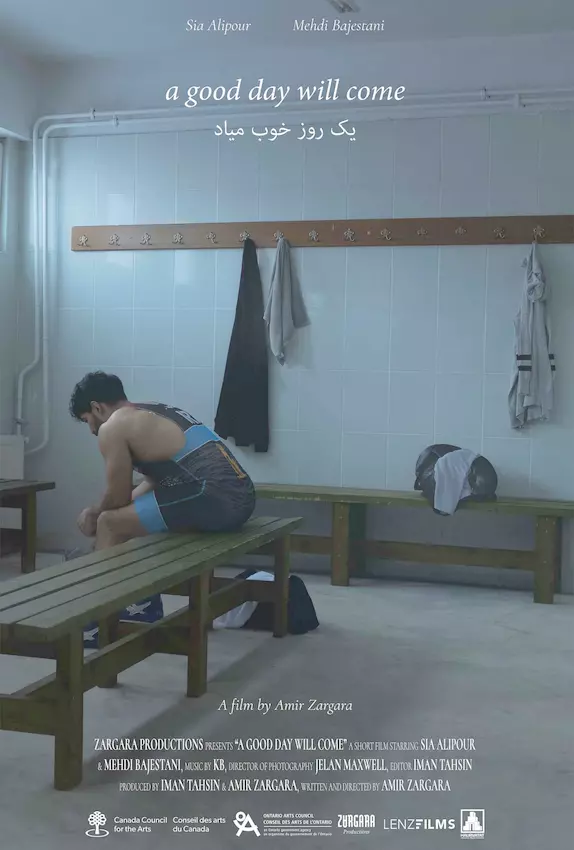
With Sia secured as the lead, I felt confident reaching out to my dream choice for the coach, Mehdi Bajestani. It seemed like a long shot since he had just starred in the successful film **Holy Spider**, which premiered at Cannes and TIFF. To my surprise and delight, after reading the script, Mehdi agreed to join the project, which instantly elevated the film.
The rest of the casting was handled by our local casting director, Melih, and our producers in Istanbul, Iman and his partner Sara. They did an excellent job despite the limitations we faced. Many Iranian actors were unable to participate due to potential repercussions that might affect their ability to return home.
Regarding my casting criteria, I provided specific characteristics I was looking for in certain roles. Iman and Sara, being Iranian themselves, understood exactly what I was seeking. They worked closely with Melih to bring forward the best options, allowing us to choose the actors who best fit each role.
Without giving anything away, tell us a little bit about the script, how did you come up with the idea?
Amir Zargara (AZ): The script originates from the tragic story of Navid Afkari, whose fourth anniversary of execution was just last week. His story deeply connected with me, and I felt compelled to explore it. Initially, I hoped someone more esteemed might bring his story to life, but after waiting a couple of years without hearing of any such project, I realized that if I didn’t use the privilege I have from living in Canada to tell this story, perhaps no one would. That realization became my driving force. Although I was morally conflicted about embarking on this journey, the “why” behind it kept me motivated once I started.
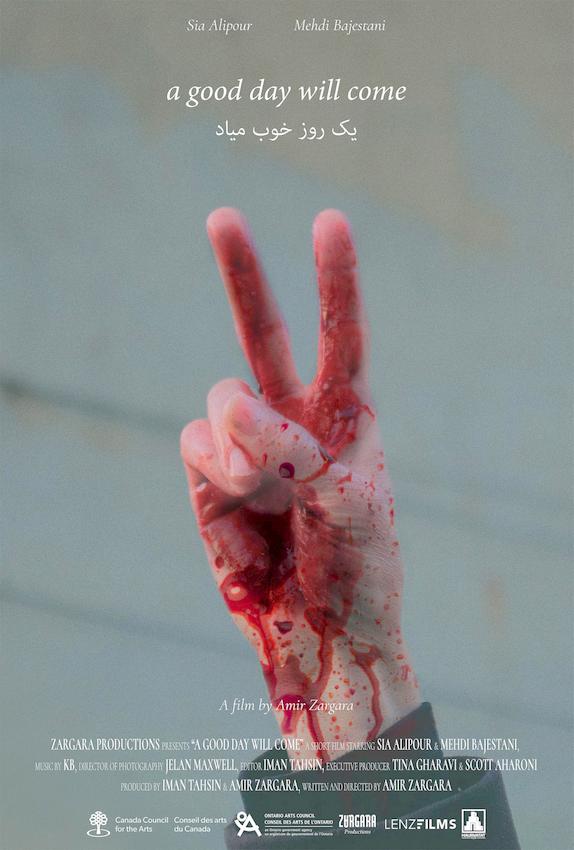
I began collaborating with another writer on a docudrama version of the events, gathering as much information as we could online. However, once we had a draft, I felt the script was too limiting. I couldn’t include other significant happenings in Iran that I wanted to touch upon to build more empathy in the audience for the Iranian people. That’s why I took a break from it for a few months.
Inspiration struck one cold winter night as I was driving back from the gym at 2 AM, listening to the song “A Good Day Will Come” by Hichkas—the Godfather of Rap in Iran. The song’s opening line, “A good day will come, that we won’t kill each other,” sparked a vivid image of a character standing with his hands up, facing guns at a protest. This powerful vision guided me to a new draft, which evolved into the final version of the film. It’s important to note that while the film is a work of fiction, the character of Arash is indeed inspired by the tragic story of Navid Afkari.
Who is “A Good Day Will Come” for? Who do you think would enjoy it the most?
Amir Zargara (AZ): The question of who A GOOD DAY WILL COME is for is indeed an intriguing one. While many Iranians, both within Iran and across the diaspora, are already familiar with the story that inspired the film, I believe this work is intended for a broader audience. The film is aimed at everyone else—to help build empathy and understanding for the Iranian people and the challenges they endure.
My hope is that by sharing this story, viewers can further distinguish between the Iranian people and their government, recognizing that they are not one and the same. I want to shed light on the human experiences and struggles that often get overshadowed by political narratives. By doing so, I aim to bridge gaps in understanding and foster a deeper connection between international audiences and the Iranian community.
I think anyone interested in human stories, social justice, and global issues would find this film impactful. It’s for those who seek to understand different cultures and the complexities within them, and for viewers who appreciate films that inspire empathy and provoke thoughtful discussion.
How long did it take to shoot the entire film?
Amir Zargara (AZ): We completed the entire shoot in six days. Production is always a challenging endeavor, with unexpected issues that require quick thinking and adaptability. After three days of shooting, we had to adjust our schedule to include a rest day because the third day was particularly demanding—we filmed at three different locations, the last of which was two hours outside of town.
The day we shot the protest scenes went smoother than expected, thanks to meticulous planning and flawless execution by everyone involved. Of course, there were hiccups; filming in a real neighborhood presented its own set of challenges. However, the local elders were incredibly helpful in resolving any issues swiftly, which allowed us to wrap up on time.
I must commend our amazing team for making this production as seamless as possible. Special thanks to Iman, our producer; Duygu, our line producer; Sara—Iman’s partner in life and business—who also served as our production sound mixer; Fetih, our production manager; and my assistant director team: Naciye, Engin, Aida, and Saba. Everyone in the cast and crew rolled with the punches to bring this project home, and their dedication made all the difference.
How long was the post-production process?
Amir Zargara (AZ): The post-production process was quite intensive. I stayed behind in Turkey for approximately two to three weeks to lock the picture with Iman, who also served as our editor. During this time, we worked closely to finalize the visual aspects of the film.
We collaborated remotely with our composer in Iran, who recorded live musicians to bring the score to life. Once the picture was locked, I returned to Canada and continued working remotely with our sound editor and mixer, Amir, who was based in Istanbul, as well as our composer, KB.
Our Director of Photography, Jelan, oversaw the color grading remotely with Iman. This presented some challenges, as color can appear differently on various monitors—even when they are calibrated and of the same model and brand. Their expertise was crucial in ensuring the visual consistency and integrity of the film across all devices.
Initially, we ended up with a 30-minute director’s cut, which I believe is the best version of the film. However, after attempting to get into festivals for eight months and having many discussions with festival programmers, I realized that the film was simply too difficult for festivals to program—possibly due to its length and content.
By March 2024, I made various cuts of the film tailored for different festivals to ensure it received the rollout and festival life it deserved. The official For Your Consideration cut that was qualified for the Academy Awards stands at 26 minutes.
The film had a lot of talent working behind the scenes as DPs, sound designers, composers, etc. Why is diversity important both in front of and behind the camera?
Amir Zargara (AZ): For this project in particular, I aimed to work with the best people suited for their respective roles while keeping our budget in mind. Jelan, our Director of Photography, has collaborated with us in Canada on all our previous projects, so I didn’t need to search for someone to fill that position. He also happens to be Black and is legally blind in one eye.
The rest of the department heads, except for KB—our composer based in Iran—were of Iranian or Turkish backgrounds and were all based in Istanbul, Turkey. I would estimate that 90% of our cast and crew were BIPOC, and we had many women in key positions such as Sara, our production sound mixer; Duygu, our line producer; and Eda, our art director, to name a few.
For the protest scenes, we included a diverse group of people, including individuals with various disabilities. This was particularly fulfilling for me, especially as a director with a disability myself. We strive to provide opportunities where we can, promoting diversity both in front of and behind the camera.
What are your goals with “A Good Day Will Come”?
Amir Zargara (AZ): Through A GOOD DAY WILL COME, my primary goal is to shed light on the resilience and spirit of the Iranian people. I aim to foster empathy and understanding among global audiences by highlighting the challenges they endure. The film strives to distinguish between the Iranian government and its people, emphasizing that they are not one and the same. By advocating for human rights and unity through storytelling, I hope to bridge cultural gaps and inspire conversations that promote solidarity and awareness.
What’s next for you? What are you working on right now?
Amir Zargara (AZ): I’m currently involved in a few projects, but my primary focus is on developing the feature film version of A GOOD DAY WILL COME. Bringing this story to life on a larger scale is a passion of mine, and I’m dedicating my efforts to expanding the narrative and exploring the characters more deeply. I believe that the themes and messages in the short film have the potential to resonate even more powerfully in a full-length format.
Working on the feature allows me to delve further into the complexities of the story and the issues it addresses. I’m in the process of refining the script as we speak. It’s an ambitious endeavor, but I’m excited about the possibilities and the impact it could have.
What would you recommend to a new director? Any special courses, workshops, helpful books they can read?
Amir Zargara (AZ): As someone who is still emerging in the field with only two short films under my belt, I might not be the foremost authority to offer advice. However, I can share what has helped me in my journey. I make it a point to absorb every ounce of knowledge I can. If you have the opportunity to attend film school, I highly recommend it. That wasn’t an option for me, so I’ve learned—and continue to learn—through various formats such as interviews, podcasts, workshops, books, and everything in between.
One exercise that has been particularly beneficial for me is reading scripts of some of my favorite films. I analyze the material, develop my own approach, and start shot-listing the scenes. Then I watch the actual scenes to see what the directors I admire did. I try to understand their choices by reading or listening to their interviews, as well as those of their department heads, and by exploring books related to their projects. This process has been incredibly helpful in honing my craft.
I especially enjoyed reading Sculpting in Time by Andrei Tarkovsky while gearing up to shoot my first short film, BECOME THE WOUNDED, which was inspired by his approach to filmmaking explored in the book. For writer-directors, there are numerous screenwriting books available that you might find valuable. I highly suggest delving into as many of them as possible. Each offers different perspectives and techniques that can enrich your understanding and approach to storytelling.
Ultimately, continuous learning and immersing yourself in all aspects of filmmaking will serve you well. Stay curious, be open to new ideas, and don’t hesitate to explore various resources to find what resonates with you.
Who is your favorite director? Why?
Amir Zargara (AZ): Choosing a favorite director is an incredibly tough question for me because there are so many whose work I deeply admire. I’ll list the first few that come to mind: Asghar Farhadi, Vittorio De Sica, Alejandro González Iñárritu, Alfonso Cuarón, Denis Villeneuve, Kathryn Bigelow, Steven Spielberg, Ridley Scott, Stanley Kubrick, Andrei Tarkovsky, Ingmar Bergman, Akira Kurosawa, Terrence Malick, Christopher Nolan, and Martin Scorsese. I realize that’s more than ten, but it’s hard to stop once I get started.
I’ve watched the entire filmography of these directors and have learned—and continue to learn—a great deal from these masters. I could easily extend this list to include 50 to 100 directors because each brings something unique to the art of filmmaking.
If I had to single out one director I’ve been particularly focused on lately, it would be Denis Villeneuve. Over the past year, I’ve been studying his career and work extensively. Perhaps it’s because he comes from the Canadian filmmaking system, like myself, and has successfully broken into Hollywood, where he continues to excel and create larger-scale films. I’m a student of his films and re-watch a couple of them every month to learn from his storytelling techniques, visual style, and ability to handle complex narratives.
What advice would you give directors around the world?
Amir Zargara (AZ): Once again, I don’t feel entirely qualified to offer advice, as I’m still emerging in my own career. However, something that frequently comes up in our small circle of filmmakers is the importance of consistently creating. Don’t let years go by without making anything. At the end of the day, filmmaking is a craft, and my director friends and I try our best to make at least one project per year. It doesn’t have to be big or even released to the public; the key is to go through the process and continually improve.
As directors, we often spend a lot of time waiting for funding to come through to shoot our projects. This waiting can suddenly add up to years, and before you know it, you realize you haven’t made anything in a long time. So my advice—to myself, to my peers, and to anyone who cares to listen to an emerging filmmaker—is to just keep creating. Continuously make stuff, no matter how small, to hone your skills and keep your passion alive.
Tell us what you think of the interview with Amir Zargara. What do you think of it? What ideas did you get? Do you have any suggestions? Or did it help you? Let’s have your comments below and/or on Facebook, Instagram, or Twitter.
Socials
Website
IMDb
Instagram
FILMMAKER INTERVIEWS

